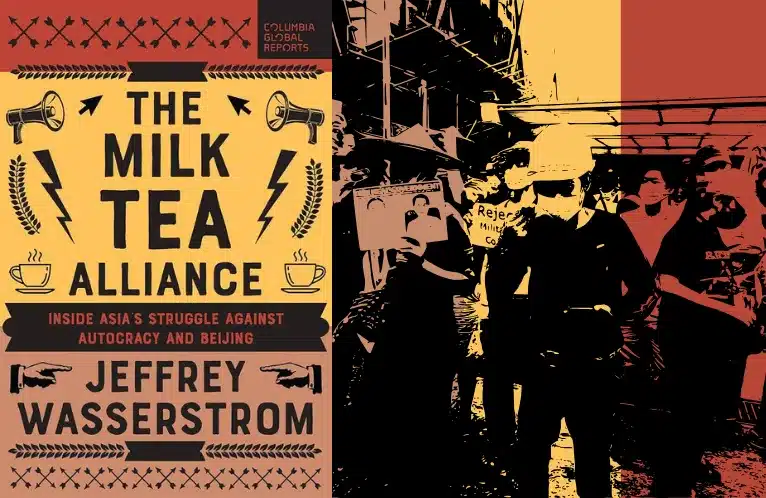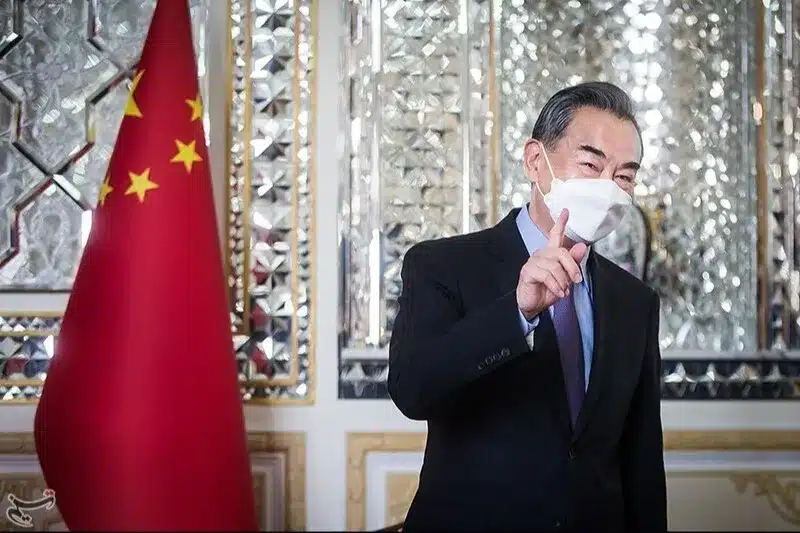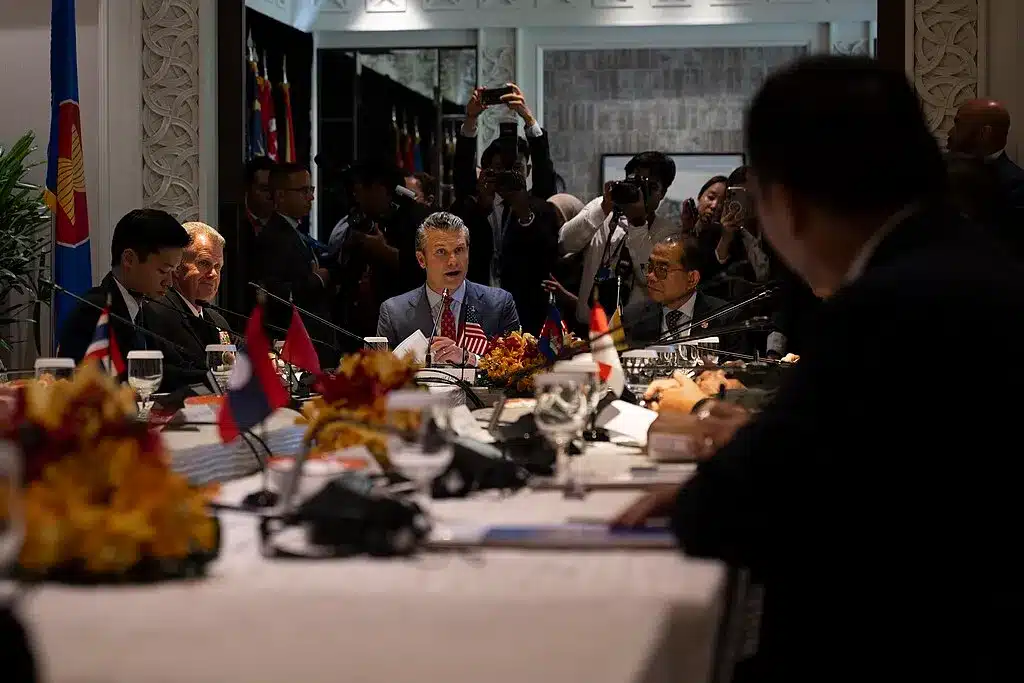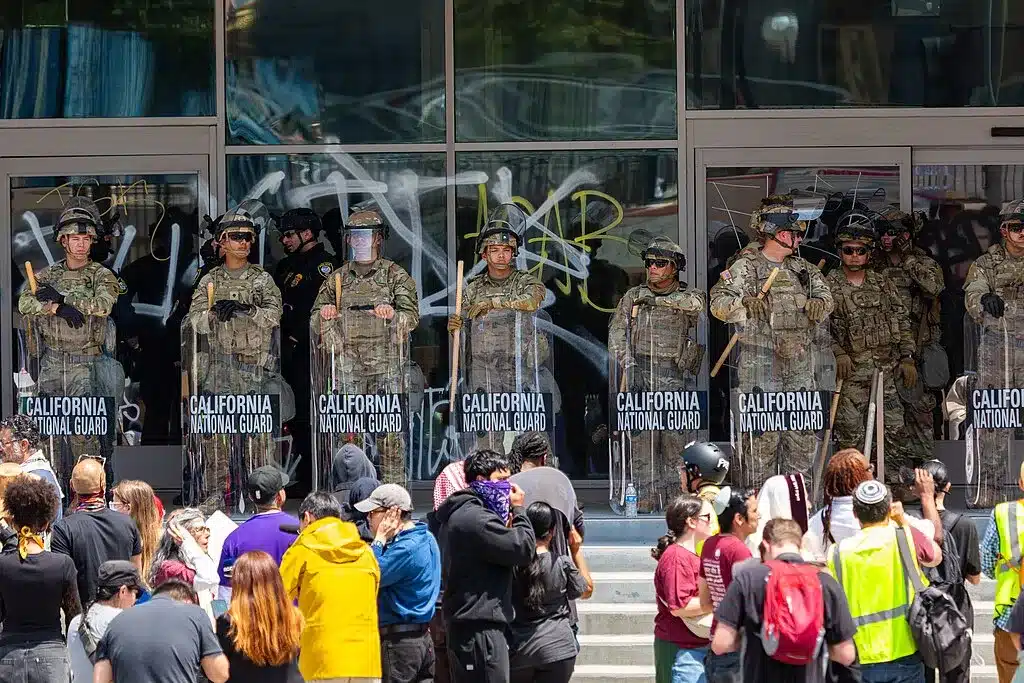A Progressive China Policy: An Interview with Jake Werner Part 2
- Interviews
 Miranda Wilson
Miranda Wilson 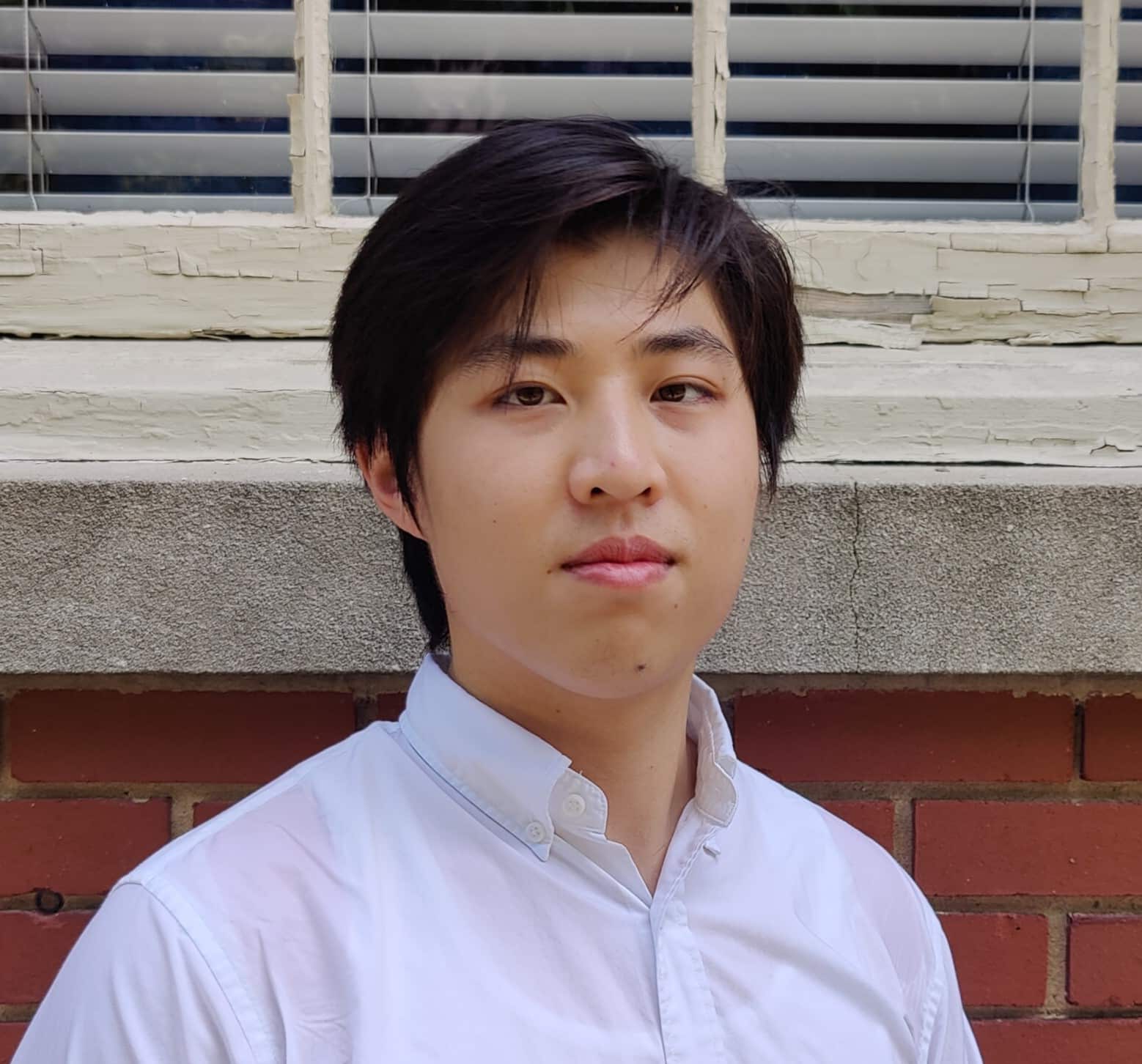 Chris Mao
Chris Mao- 11/19/2024
- 0
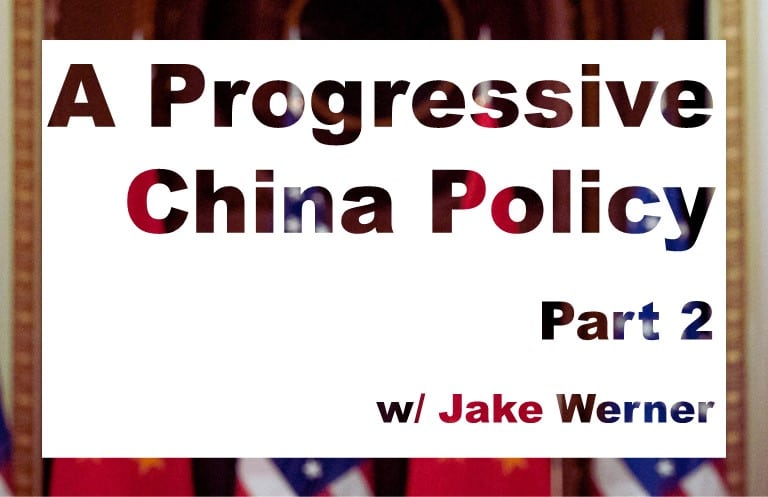
In Part 2 of our interview with Dr. Werner, we discuss trade and technology, investment in the Global South, and how Americans can improve relations with China in their day-to-day lives. If you missed Part 1, read it here.
Dr. Jake Werner’s report, “A Program for Progressive China Policy,” was published on July 30, 2024 by the Quincy Institute. In his report, Dr. Werner argues for cooperation over competition, multilateral collaboration, and a focus on shared challenges. The Monitor interviewed Dr. Werner about the specifics of a “progressive” China policy and his advice for a more cooperative U.S.-China relationship.
Jake Werner is acting director of the East Asia Program at the Quincy Institute. His research examines the emergence of great power conflict between the US and China and develops policies to rebuild constructive economic relations. Prior to joining Quincy, Jake was a Postdoctoral Global China Research Fellow at the Boston University Global Development Policy Center, a Harper-Schmidt Fellow at the University of Chicago, a Fulbright Scholar at National Chiao Tung University in Taiwan, and a Fulbright-Hays Fellow at East China Normal University in Shanghai. He received his PhD in history from the University of Chicago. Jake is also a cofounder of Justice Is Global, a grassroots organizing project that advocates for reforms to the global economy; a cofounder of Critical China Scholars, a network of academics engaged in public education on Chinese politics and society; and a steering committee member of the Committee for a Sane US-China Policy. His writing has appeared in publications like Foreign Affairs, Time, The Nation, and The Guardian.
MW: One section of the report focuses on trade and technology. You mention the United States’ recent strategy of “decoupling.” Do you think it is possible for the United States and China to decouple their technology? What do you foresee as the future of global technology with two countries dedicated to technological innovation?
JW: The Biden approach has been to focus on certain advanced, strategically important technologies and try to create an independent American capacity in those technologies to ensure that American companies maintain their lead. That includes aggressive actions to prevent China from advancing in those fields, including blockading advanced semiconductors and coercing other producers of related technologies to join that blockade. A complete decoupling of technology is unlikely, but we have seen the Biden administration, building on Obama and Trump, systematize and expand those initiatives to focus on what they consider to be strategically important technologies for military or economic reasons.
The trade relationship, of course, remains enormous, even though it has declined modestly. Even much of the fall in bilateral trade is really just a reworking of supply chains rather than a reduction in U.S. dependence on Chinese production. A lot of Chinese companies are investing in Southeast Asian countries, for example, to set up production that will export to the United States. American companies are maintaining productive capacity in China, but they’re finding additional locations in Vietnam or India so at least a part of their supply chain is outside of China.
It is impossible to imagine a global economy that doesn’t have China at the heart of it, and that means that China will be a feature of U.S. trade one way or another. The question really is, do the United States and China regard each other as locked in a zero-sum conflict, or is there some other path that wouldn’t require that kind of destructive nationalist view on who gets to dominate important sectors? It certainly seems like we’re going in the direction of a great power conflict around technology for now, the only question is how much damage the two countries will do to each other and themselves in the process.
MW: When addressing the issue of human rights violations, you note that consistency should be a goal for the United States; for example, not just calling out enemies for abuses, but also recognizing its own missteps. How can the United States be less hypocritical on issues like surveillance and police brutality?
JW: It’s an interesting question because the United States could just choose to be consistent about these things instead of obviously hypocritical about them. That’s the easy response. But that response doesn’t take into account the fact that American human rights abuses and U.S. complicity in the human rights abuses of other countries are a product of structural inequalities, and a product of how living within those inequalities shapes ideology. It’s not as easy as saying that the United States is just not going to do it anymore. Changing it would require changing the organization of power and growth in American society. That’s true for China as well. When American leaders lecture China about abusing human rights, they ignore the fact that human rights abuses come out of systematic imbalances in power.
If we start by reframing the problem in that way, then we can also step back from the intense moralism that demands immediate consistency. If the problem is structural in nature, then we can focus on creating the social conditions under which elites in the United States or China would feel compelled to respect human rights.
Whenever U.S. foreign policy leaders start talking about consistent standards for human rights—not just using human rights as a bludgeon against our enemies—there’s always a backlash. People say: you’re giving up our power, you’re betraying our allies. Our allies often are dictators or they’re committing atrocities, and we can’t betray our allies because they’re useful to us geopolitically.
The strongest response to that objection is not “you’re immoral”. That doesn’t change the pressures driving those who hold power. The strongest response is to change the conditions that drive their calculations, so that supporting dictators and war criminals is no longer the best way to pursue their goals.
Often the most significant pressure is a sense of zero-sum competition, that if we don’t hold our position of dominance and repress our enemies, we will be destroyed. A zero-sum structure is feeding all kinds of group conflicts in countries around the world, racial and religious and communal conflict, not just international tensions. It gives the advantage to authoritarian currents in both societies because it makes authoritarian arguments seem more plausible to a wider audience. It validates the idea that we have to repress our dissidents because our dissidents are undermining our national power, and we have to maintain this power because we’re locked in a zero-sum struggle. Overcoming zero-sum pressures is not enough on its own, but it’s a necessary precondition to ending human rights abuses.
CM: You mentioned previously the United States and China could jointly invest in the Global South. What are the similarities or differences between the United States and China in terms of investing in the Global South? How are they different or similar in their investment goals or strategies, and how might that become an obstacle or facilitate the process of joint investment?
JW: The core motivation for the Belt and Road and other development financing in the Global South is related to the Chinese growth model. For example, securing reliable supplies of raw materials for Chinese factories and finding a profitable outlet for the large accumulation of Chinese currency reserves that didn’t have any place to go. Another example is the search for markets for Chinese producers that were running up against the limits of the domestic market. This includes things like steel producers, building contractors, and high-speed rail engineers. Because of China’s growth model, which really emphasized infrastructure and engineering, there were major surpluses that China had accumulated internally that it was looking to do something with. This pulled Chinese companies out of China and pushed the Chinese government into facilitating these processes. One of the things that companies found when they went to other countries was that those countries didn’t have investment capital. The Chinese government had huge currency reserves that it lent out to create demand for Chinese companies. The hope was that they would be paid back, and the loans would actually make a profit.
This was particularly pronounced in the first half of the 2010s, and it was very successful at one level. It did create a lot of demand for these companies, but many of those loans were already going bad by the end of the 2010s. Then, the COVID-19 crisis caused a lot of the remaining loans to go bad, and combined with disruptions from the pandemic, Chinese lending dropped significantly. Over the last couple of years, we’ve seen new growth, but the nature of the projects has shifted. Many are now looking towards digital projects or health projects. There is still an interest in large-scale infrastructure, but it’s much less after the negative experience of so many loans going bad.
On the American side, there hasn’t been an impetus for American companies to go out in the Global South or for the American state to support them because the Global South didn’t offer very good returns. Chinese companies didn’t have easy access to the rich markets, where returns are much higher, because they were already dominated by American, European, and Japanese companies. Chinese companies were forced to find opportunities in the Global South. American companies just didn’t need those opportunities.
Compared with the 60s and 70s, U.S. development philosophy changed by the 90s to be very small-scale, focused on things like micro-lending or governance reform rather than large-scale investment or infrastructure. One outcome was that development just wasn’t happening—no country in the world has developed through pristine institutions and petty retail. Another outcome was that a lot of countries in the Global South became really desperate for someone who would invest in transformational changes in their economies. When China went out with lots of capital and very few conditions on the use of that capital, there was a huge audience for that. Now that American leaders are panicking about Chinese influence increasing in the Global South, that has given the United States an incentive to return to the idea of large-scale development. But the effort is long on rhetoric and short on funding, it’s still not a priority for the United States.
I don’t want to completely dismiss the possibilities, because I think that there are people in the United States who recognize the importance of the Global South, especially in the global climate transition, and who care about what happens to people in the Global South, often because they have family members there. The waves of immigration into the United States in recent decades created real human connections with people in these countries. But it will require a change in politics in the United States to translate that potential into reality. As a narrow kind of nationalism has become more powerful in U.S. politics, it’s become harder for political leaders to recognize how deeply U.S. interests are tied to the future of other countries.
We’re in a transitional moment. Chinese overseas economic interests are being reshaped, and the previous U.S. commitment to overseeing the interests of global commerce as a whole has collapsed. There’s an opportunity for the United States and China to work together on reforming the global economy in an inclusive direction that would increase opportunity for people everywhere, but we’re in danger of losing that possibility to great power conflict.
MW: Finally, what can the American public do to improve U.S.-China relations? What should our day-to-day priorities be?
JW: One of the biggest obstacles to changing the dynamics around U.S.-China relations in Washington is the monolithic sense that China is a threat, and we have to counter that threat. I’ve talked with dozens of Congressional offices, and many of them are sympathetic to the case I’m making, but they also say the politics make it really hard. They’re not hearing from people who want a healthy U.S.-China relationship. They’re not hearing from people who say, “If you pursue a purely antagonistic approach to China, I am not going to vote for you.” Those kinds of consequences are few and far between. So the first thing you can do is talk to your member of Congress, tell them that this is a major priority for you and that you would like to see a change in the way that the United States is conducting its relationship with China — a more balanced approach, not purely antagonistic.
Another priority should be broad education, awareness, and humanization of people in China. Raising awareness is an important thing that we can do to expand the circle of people who can imagine a different approach to U.S.-China relations. We have to stop treating China as a symbol of everything un-American and instead recognize the shared experiences and shared interests.
And there are always more active possibilities. Some advocacy organizations recognize that, if the U.S.-China relationship goes bad, it’s going to be really damaging to their interests. For example, climate groups understand very viscerally that the U.S.-China conflict would undermine the entire global climate movement. This is true for many other issues too, but it’s often underappreciated. So whatever issue you’re involved in, raising this concern is important.
The focus of foreign policy over the last few years has been the emergencies: Russia, Ukraine, the Israeli wars. But it’s important to emphasize that the U.S.-China relationship will create the entire framework for the global system over the next several decades, if not more. U.S.-China conflict would systematically sideline all of the humane goals that we want to pursue. In D.C. right now, it can often feel like a constructive relationship with China is a completely impractical aim. But it’s far more impractical to think we could achieve American goals while locked in destructive conflict with the second most powerful country in the world. It’s up to those of us who understand that to impress it on our leaders.
Miranda Wilson is a senior at Emory University and contributing editor for the U.S.-China Perception Monitor. Chris Mao is a senior at Emory University and intern for China Focus at The Carter Center.
The views expressed in this article represent those of the author(s) and not those of The Carter Center.


